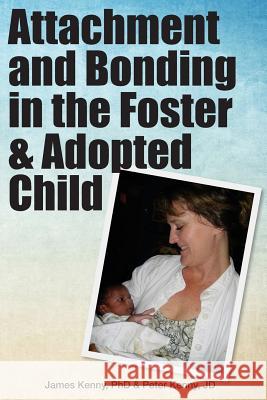Attachment and Bonding in the Foster and Adopted Child » książka
Attachment and Bonding in the Foster and Adopted Child
ISBN-13: 9780976156437 / Angielski / Miękka / 2014 / 226 str.
Multiple placements, delay in achieving deadlines, and emancipation have increased the burdens on already vulnerable foster children. The child welfare and court systems, despite good laws and policies, have generally failed to provide children with permanent homes in a developmentally timely manner. Ignorance of the nature and critical importance of bonding is a major cause of this lack of success. Attachment and bonding are words that have been used loosely to describe a variety of personal relationships, beginning with the theories of Bowlby and Ainsworth. Bonding is defined in practical and objective terms that are research-based. It is important and significant because its disruption can lead to significant increases in mental illness, crime, and homelessness. An overwhelming number of statistical studies have documented and affirmed this. Readers will learn how to perform a bonding evaluation and how to present the findings in court. The roles of the birth parent, foster parent, adoptive parent, child, case manager, mental health professional, attorneys, and the court are all considered for their part in achieving permanence for children in temporary care. Finally, the authors share innovative recommendations about ways to improve the system and reduce time in foster care. Every child has the right to a permanent home.











